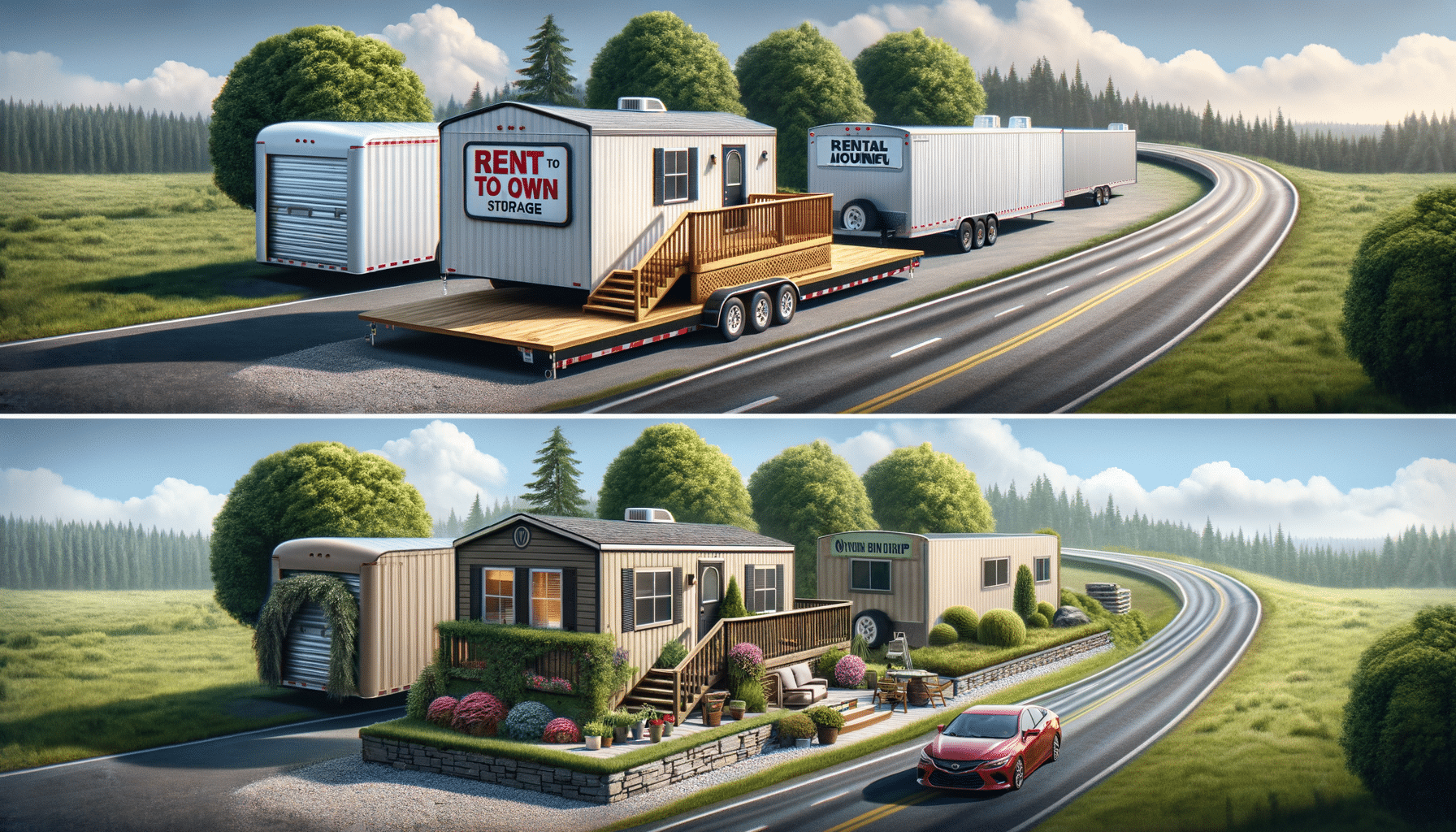From Rental to Ownership: The Smart Way to Get the Enclosed Trailer You Need
Looking for an enclosed storage trailer that fits your budget? Explore flexible rent-to-own options that provide secure storage and reliable transport affordably.

Understanding Rent-to-Own Storage Trailers
Rent-to-own storage trailers present a unique opportunity for businesses and individuals requiring flexible storage solutions without the immediate financial burden of purchasing a trailer outright. This arrangement allows users to rent a trailer with the option to purchase it after a set period. The concept is particularly appealing for those who need temporary storage but foresee a long-term requirement. By opting for rent-to-own, users can test the trailer’s utility and performance over time before committing to ownership.
The rent-to-own model typically involves a rental agreement that includes an option to purchase the trailer at the end of the lease term. Payments made during the rental period often contribute to the purchase price, making it an economical choice. This option is especially beneficial for small businesses, start-ups, or those with fluctuating storage needs, providing a way to manage cash flow effectively while securing necessary equipment.
Moreover, rent-to-own agreements can be customized to fit specific needs, with terms varying in duration and payment schedules. This flexibility allows users to align their financial commitments with their operational requirements, ensuring that they only pay for what they need when they need it. As a result, rent-to-own storage trailers are becoming an increasingly popular choice for those seeking a balance between affordability and ownership.
Benefits of Choosing Rent-to-Own
Opting for a rent-to-own storage trailer offers several advantages that cater to diverse needs. One of the primary benefits is the financial flexibility it provides. Unlike traditional purchasing, where a significant upfront investment is required, rent-to-own allows for smaller, manageable payments over time. This can be particularly advantageous for businesses that need to allocate capital to other areas.
Another benefit is the opportunity for trial and error. Users can evaluate the trailer’s performance, durability, and suitability for their specific needs during the rental period. This trial phase helps in making informed decisions about whether to proceed with the purchase. Additionally, the rent-to-own model often includes maintenance and repair services, reducing the burden of unexpected costs during the rental term.
Furthermore, rent-to-own agreements can offer tax advantages. Rental payments may be deductible as business expenses, providing financial relief and potentially lowering taxable income. This aspect makes rent-to-own storage trailers an attractive option for businesses aiming to optimize their financial strategies while acquiring essential assets.
Comparing Rent-to-Own with Traditional Leasing
When deciding between rent-to-own and traditional leasing, it’s important to understand the key differences that may influence your choice. Traditional leasing typically involves a fixed-term contract where the lessee pays for the use of the trailer without the option to purchase it at the end of the lease. This can be suitable for short-term needs but may not be ideal for those looking for long-term solutions.
In contrast, rent-to-own agreements combine the benefits of leasing with the potential for ownership. Payments made during the rental period often contribute to the final purchase price, offering a pathway to ownership without the immediate financial strain. This aspect is particularly appealing for those who anticipate a continued need for the trailer beyond the rental term.
Additionally, rent-to-own agreements tend to offer more flexibility in terms of contract length and payment schedules. This adaptability allows users to tailor agreements to their specific financial and operational needs, unlike traditional leases which are often more rigid. As a result, rent-to-own can be a more strategic choice for those seeking both flexibility and the option to own the asset in the future.
Key Considerations Before Entering a Rent-to-Own Agreement
Before committing to a rent-to-own storage trailer, it’s crucial to consider several factors to ensure the agreement aligns with your needs and capabilities. First, assess your long-term storage requirements. If you anticipate needing the trailer beyond the rental period, rent-to-own may be a suitable option. However, if your needs are temporary, a traditional lease might be more cost-effective.
It’s also important to evaluate the financial terms of the agreement. Review the total cost of ownership, including monthly payments, interest rates, and any additional fees. Understanding these elements will help you determine if the agreement fits within your budget and financial goals.
Additionally, inspect the trailer’s condition and ensure it meets your specifications before entering into an agreement. Consider any maintenance responsibilities and clarify who will handle repairs during the rental period. This due diligence will help avoid unexpected costs and ensure the trailer serves your needs effectively.
Lastly, read the contract thoroughly and seek legal advice if necessary. Understanding the terms and conditions, including the option to purchase and any penalties for early termination, is essential for making an informed decision.
Conclusion: Is Rent-to-Own the Right Choice for You?
Rent-to-own storage trailers offer a compelling solution for those seeking flexibility and the potential for ownership. With financial benefits, trial opportunities, and adaptable agreements, they cater to a wide range of needs. Whether you’re a business managing cash flow or an individual with evolving storage requirements, rent-to-own can provide a strategic pathway to acquiring essential equipment without the upfront cost.
Ultimately, the decision to enter a rent-to-own agreement should be based on a thorough evaluation of your storage needs, financial capacity, and long-term goals. By considering these factors and understanding the benefits and challenges of rent-to-own, you can make an informed choice that aligns with your objectives and ensures you have the right tools to meet your needs.